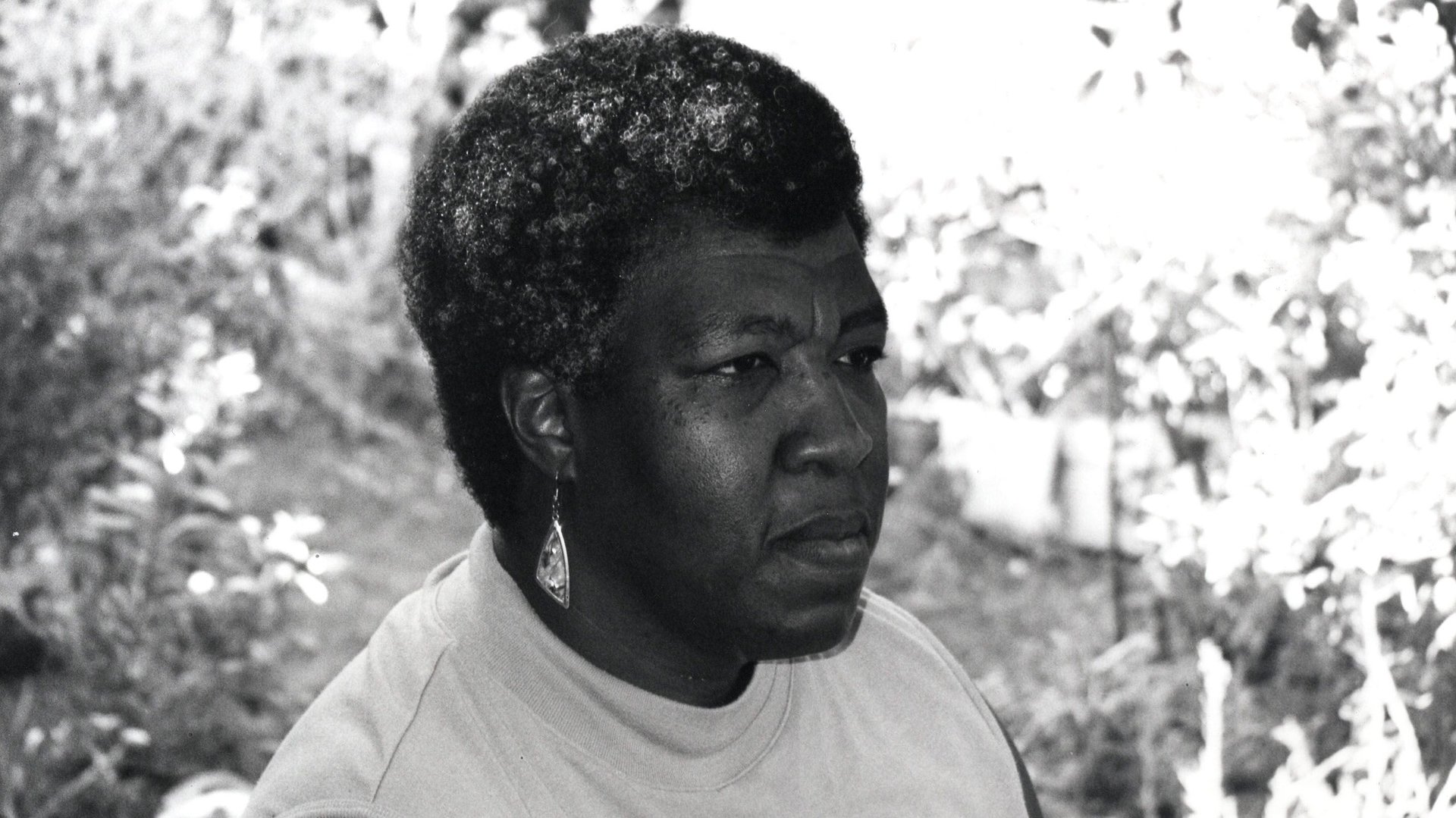The woman who dissected the absurdity of racism through science fiction
Science fiction allowed for freedom, the legendary writer Octavia E. Butler believed.


Science fiction allowed for freedom, the legendary writer Octavia E. Butler believed.
“There are no closed doors, no walls. The only rule is, if you use science, you should use it accurately,” she told Charlie Rose in 2000, when asked why she chose to write in the genre. “You can look at, examine, play with anything, absolutely anything.”
Butler, renowned for her fantasy and science fiction works and as a pioneer for women of color, dared to create strong characters who looked like her and have them time-travel and live on other planets. Born on June 22, 1947, she died suddenly in 2006 at age 58. Her work is celebrated in today’s Google Doodle.
Though Butler didn’t attempt to speak on behalf of any group or put forward an overarching thesis, race, slavery, history, and sex powered her deeply disturbing narratives about species-level moral quandaries.
In her 1970s Patternist series, the character Doro breeds a powerful race of telepaths to become masters over mute humans; in her 1979 novel, Kindred, Dana is transported unwillingly from her sunny 1976 LA life to an 1815 Maryland plantation, where she is assumed to be a slave; in her 1980s Xenogenesis series, later renamed Lilith’s Brood, Lilith wakes up on a spaceship of gene traders 250 years in the future, expected to create and protect a new interbred species of human-aliens.
In her works, Butler often took the vantage point of the Other. In her 2005 novel, Fledgling, Butler created an ancient race of vampire-like humanoids to unpack the absurdities of race, age, and gender. The protagonist, Shori, appears as a 10-year-old African-American girl, but in reality is an older member of the Ina species that has lived alongside humans for centuries, and whose members have evolved darker skin to withstand the sun. Shori faces prejudice against an identity not her own as she tries to bring change to her own species and their relationships with humans.
In her interview with Rose, Butler recalled a sci-fi convention panel she spoke on in the late 1970s, in which a male, presumably white, editor told her that there was no need for black characters in sci-fi, “because you could always make any racial statement you needed to make by way of extraterrestrials.” Butler noted that “if he was trying to start trouble, he certainly succeeded.”
Elsewhere in that interview she asked, rhetorically, “Do I want to say something central about race? Aside from, ‘Hey, we’re here’?”